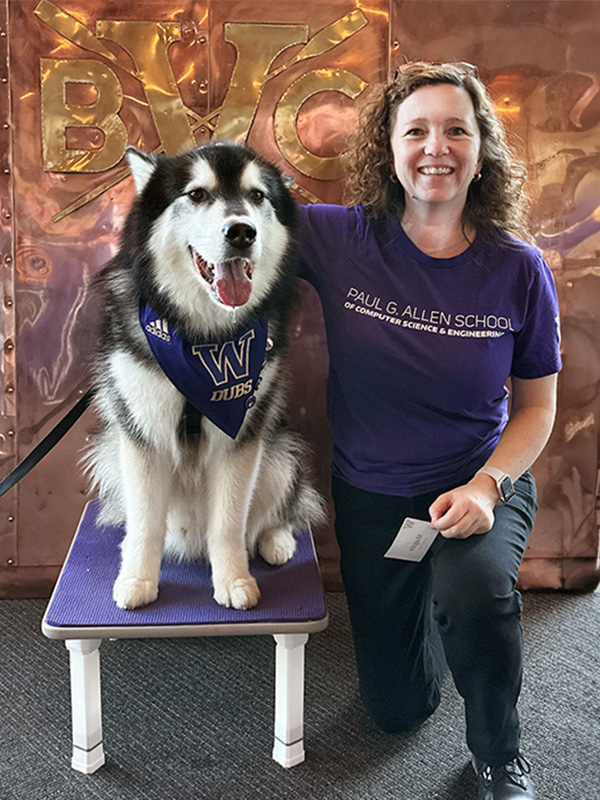Message from the Director

Welcome to the Allen School!
It is my honor to serve as head of the Paul G. Allen School of Computer Science & Engineering at the University of Washington — our state’s flagship public university and a major driver of innovation and economic opportunity here at home and around the globe.
At the Allen School, we pride ourselves on our educational and research excellence and our commitment to cultivating a welcoming and inclusive community for all. We prepare students to be the innovators and leaders of tomorrow while blazing new trails for our field in artificial intelligence, human-computer interaction, mobile sensing, sustainable computing, data science and so much more.
And we are truly a school of and for Washington! More than 90% of our entering first-year class last year — and more than 80% of our total undergraduate student body — are Washington state residents. Thanks to recent investments from the State Legislature, we have steadily and rapidly grown to serve more students, including students from backgrounds historically underrepresented in computing. Our buildings — the Paul G. Allen Center and the Bill & Melinda Gates Center — offer students, faculty and staff an unparalleled environment in which to learn, work and collaborate at the heart of the UW campus. We are also at the heart of Seattle’s vibrant innovation ecosystem, with connections to hundreds of companies of all sizes and stages of growth as well as industry and non-profit research labs.
While our emphasis is on educating Washington’s students for exciting career opportunities in computing, we drive discoveries and innovations that benefit people and communities across our country and throughout the world. From explainable AI techniques for advancing biomedical research and health care, to interactive tools for making cities more accessible, to novel AI methods to improve the access to and quality of mental health interventions, the Allen School is at the forefront when it comes to developing technology for societal good. And that is only a small sample! We are also renowned for our work advancing the foundations of our field, from algorithms that set a new standard for speed, security and efficiency, to taking a cue from nature to redefine what a computer can be.
I hope you will take some time to explore our high-impact research, learn about our highly regarded degree programs, check out our leading-edge courses, get to know our world-class faculty and catch up on our latest news. And if we can be of assistance, please get in touch!
Best regards,
Magdalena Balazinska
Professor, Director and Bill & Melinda Gates Chair
Paul G. Allen School of Computer Science & Engineering
